#rumble thy bellyful
Text
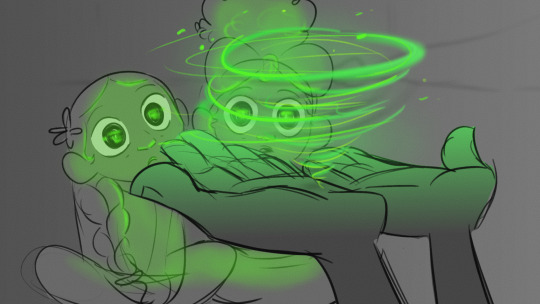

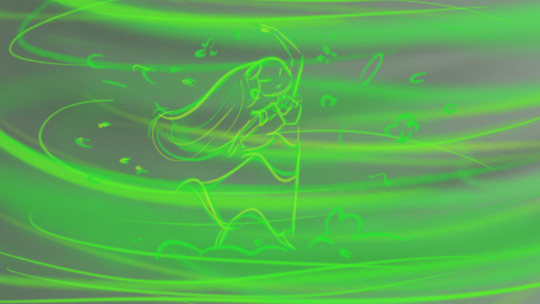
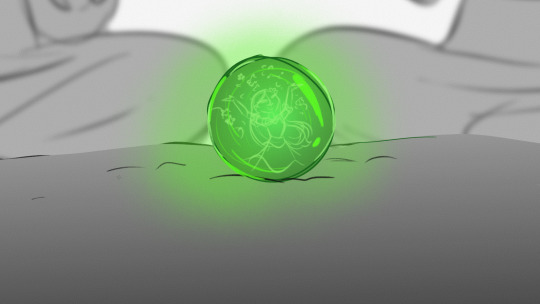
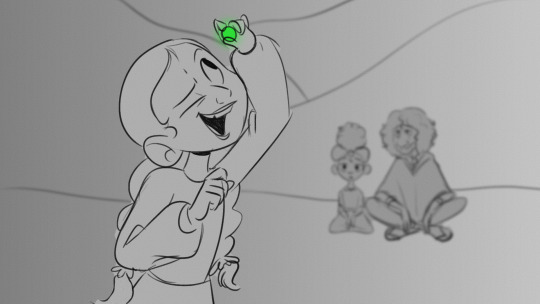
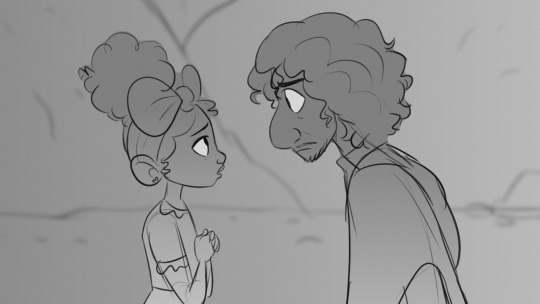
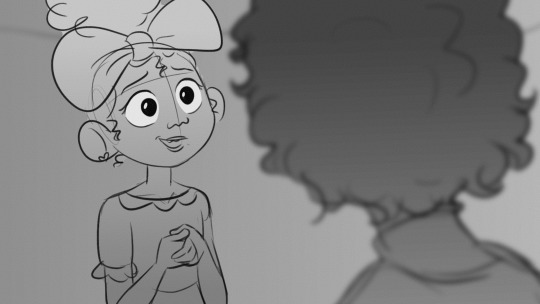
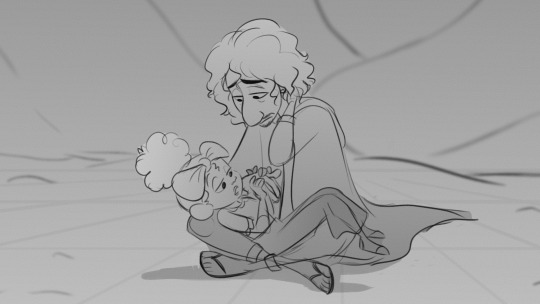
Part 1 of some beat boards that I did a for @cheetee’s fic Rumble Thy Bellyful! (I didn’t do this for the encanto big bang event, this is from weeks ago)
Tumblr only lets you post 10 images at a time so here’s part 2!
This moment happens in chapter one and sets up Dolores’ relationship with Bruno and it’s just 🤌🏼🤌🏼🤌🏼 so good. It hurts but it’s so good. So good in fact that I felt inspired to do some practice boards for it!
If you haven’t read rumble, I highly recommend. I laughed, I was at the edge of my seat (well bed), I curled up into a ball and squealed from cuteness, it’s GOOD
#this fic was so fun to read AUGH#I always love drawing Bruno in Tio mode#my encanto fanart#rumble thy bellyful#my skeebie deebies 💕#encanto boards ✨#ficsss
718 notes
·
View notes
Text
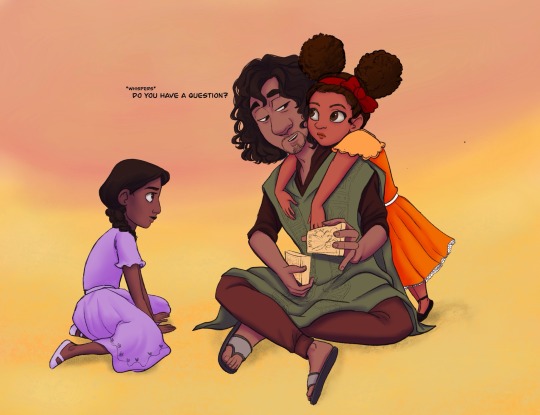
There was something so damn soft and sweet about the first Chapter of “Rumble thy Bellyful” by @cheetee had to draw it.
#bruno magridal#dolores madrigal#isabela madrigal#encanto#fanart#encanto fanart#rumble thy bellyful#prophetic hijinks art#prophetic hijinks fanart
493 notes
·
View notes
Text
For my birthday, my amazing and incredibly talented partner @witchy-rook recorded the WHOLE ENTIRETY of one of my fics as a fully edited audiobook! Luke Sophia has the voice of angel and this is one of the best gifts ever and I love it so much 😭
Here's Chapter 2, the introduction of my beloved stupid Mariano. Thumbnail by @prophetic-hijinks
Full Audiobook
AO3
40 notes
·
View notes
Text
Encanto Fic Recommendation Pt. 2
Hello! I'm back due to popular demand, jk. My twt moots decided to vote that I should post a second part of this, so here I am!
My opinions are unreliable and are more on the emotions I felt while reading. And it is given that I get too tired of writing the "reviews" that some fics will have one to none, but it doesn't mean that I don't love it, I'm just lazy.
Please tag the authors if they are here so I can tag them in their respective works.
And without further ado, fic recommendation pt. 2! Part 1
Series
Finding Your Place by monkiimax
The Sandman by cthene
La Familia Madrigal: Future Gen by GhostsintheAttic
What Does Love Sound Like? by Highly_Illogical
~ Encanto (En) by Syl_05
La Luna by luna_de_encanto (@lunamadrigal )
One-Shots
Three Pairs of Big Brown Eyes by TrixySpirit
Pinching The Pancita by GlitterNight (@glitternightingale)
Glass is Just Hot Sand by adoraberry
A Helping Hand by whelmedtobehere
and here, she rests by bthumanity
A little dinner scandal by SrebrnaFH
Stand-Alone
The Sandman by cthene (@cthene) = I am absolutely devastated with this fic. As much as I love their dynamic, I'm still crying. Bruno is such a badass when he learns to protect his family. Very wholesome, and will have you holding your breath every sentence, especially in chapter 2. Bring tissues, the angst is just *weeps*
The Precipice by RinnySega (@rinnysega) = I'm emotionally invested in this fic and I can't stop crying. pls RINNY STOP TORTURING OUR BOI
something unexpected by Wikluk for ADabOfBlessings (@wikluk) = holy shit Julie is pregnant and Antonio being the primo mayor he always wanted to be.
Help will always be offered by Casita by Dragonposeidon = Characters watch the movie but with young Alma and Pedro adgfksdfsks please theyre trying.
A New Way of Life by Catlovingmermaid = yeah Mirabel getting her legs crushed and their magic is gone. Now this got me thinking, why do we always put her into so much emotional damage? ahdajksdka but yeah same.
Eternal Candle Light by Sanda_Brask = Mariano/Dolores being the cute married couple but with the angst
Rumble Thy Bellyful! by cheetour (@cheetee) = Mariano being the resident himbo is so funyyyyy. and also Mariano/Dolores.
Object Permanence by cannibalthoughts = Mirabel found it hard to pin down Bruno but he was so good at blending with the shadows.
Written in Glass Not Stone by CaptainTardis = The family makes amends and fixes the cracks before they get worse.
Letting In The Light by WifeOfBean (@wifeofbean) = two words, emotional damage. i can only imagine how hurt Alma is, but at least she got reunited with Pedro? ig? anyways, im thinking as they are also Madrigals, would they get gifts too?
Anything To Remember by Buckalicious = Mirabel wants to remember her tio Bruno and the candle helps her.
A Second's Forever by masqcat = *cries loudly* poor Julieta.
And I Hear You by IBleedCottonCandy = Dolores had been through a lot just to have her happy ending. a lot of family angst and heartbreak.
Moving to the moment and the moment to the moving by ShyLittle_Frog = im a little confused with the timeline but the idea for this fic is amzing. and also, little Mirabel grrrr
Tremors by Missilestorm (@missilestorm1) = Mirabel finally gets a gift after the fall of Casita, but she feels more isolated more than ever.
This Might As Well Happen by LissyStrata = Bruno becomes a rat and the family bonds over it.
The Rats Talking in the Walls by SorryIWasAsleep (@sorryiwasasleep) = Instead of going to Luisa, Mirabel takes the Dolores's words literally and went to Antonio.
Primos by LittleRedTea = collection of one-shots of Milo & Mira duo throughout the years.
What if Mirabel was Banished? by GoldenRose29 = a twist on villain Mirabel but this time the family deserved everything. I mean why the fuck would they banish a child and then ban her from seeing her mother? And her only support was her grandpa and Pedro being supportive abuelo. zsdjzhfkjhfs so much feels for this.
the unspoken (in)visible pain by the_glare_you_see = scrappy Mira ftw.
Burned And Buried by Hlootooart (@hlootooart) = have u seen the art and this fic??!! its amazing. the family dynamics are well-written. the world? just amazing
Nothing In This World by EchoBleu = the family thought that Bruno killed Mirabel and now they're back in the Encanto.
One Step Closer by Breanna (@breannaaiedail) = she's back with another fic for the The Distance Between Us series. It's angsty. It's comforting. And if you read my previous fic rec, you know how much I love this series.
A Miracle, Ten Years Overdue by karimeaway = Mirabel as a ghost that only Antonio can see.
And Every Year Our Family Blessings Grow by Calicy = Dolores got pregnant unexpectedly, they eloped, and Mariano gets in trouble with Dolores's family.
Choices, Chances and Changes by Baamon5evr = I love the alternating time povs of this fic. basically, Bruno and Mirabel runaway from the Encanto and then returned.
Among the Emeralds by crazyashley (@thecrazyashley-blog) = Bruno/OC where the OC is a cafe owner and a book enthusiast. THEY ARE SO CUTE TOGETHER
NSFW
The Shade of the Sheets Before All the Stains by inredbluegreen = Bruno/Reader but the reader is a prostitute. Honestly, this made me want to be one if I get Bruno as a customer. I'm a thirsty bitch for him just for him tho.

EDIT: if it’s not a bother, you can check the fics I wrote too! skdhdkaks pls i need validation jk 1/2. anyways enjoy!
#encanto fanfic#encanto#disney encanto#madrigal family#encanto fanfic recomendation#familia madrigal
102 notes
·
View notes
Text
King Lear Moves On
Shakespeare’s plays are divided into comedies, histories, and tragedies because that was the way they were labelled when they were first published in 1623, a mere seven years after the bard’s death, and the publisher’s technique for categorizing them is easy to discern even after all these years: the ones about real people were called histories, the ones in which the protagonist dies at the end were called tragedies, and the ones with happy endings were labelled comedies. But there’s clearly more to it than meets the eye at first, and particularly as regards the distinction between tragedy and comedy.
In Shakespeare’s tragedies, the play is generally “about” a flaw in the protagonist’s character that leads directly, if not always inexorably, first to his downfall and then to his death. That notion is obvious enough in the most famous tragedies: Macbeth, Hamlet, King Lear, Julius Caesar, and Romeo and Juliet. But there are also comedies like The Tempest and The Merchant of Venice that also feature that “fatal flaw” concept at the core of the narrative and plays that combine those two elements are sometimes called “tragicomedies” since they feature fatally flawed protagonists and relatively happy endings. (I remember in this regard once challenging my English teacher in high school, Mr. Bergman—who was also my college counselor—to explain how it could be even remotely possible to describe The Merchant of Venice, with its deeply anti-Semitic tropes, as a comedy. And I remember his response too: if you’re not too overly identified with Shylock (which he clearly thought I was), he said gently, it’s a pretty funny play. Hardy-har-har!
Perhaps I’ll write some other time about Shylock or about Mr. Bergman (whose major claim to importance in my life as a young man, aside from the terrible advice he offered about colleges, was that he introduced me to the novels of Thomas Hardy), but today I’d like to write about the greatest Shakespearean tragic figure of them all, King Lear.
His story continues to captivate. Jane Smiley’s bestselling 1991 book, A Thousand Acres, sets Lear’s story on a farm in Iowa. More recently, Christopher Moore put Lear’s story at the center of his very funny novel, Fool. But best of all, at least in my opinion, is Edward St. Aubyn’s terrific novel, Dunbar, that tells the same story rivetingly as the author imagines how Lear’s story would play out among the upper 1% of the upper 1% in London and New York. All good books worth looking for and at, particularly St. Aubyn’s.
Lear is the title character because the play is about him…but the play is even more about the people all around who conspire, as the time has finally come for Lear to relinquish both his throne and his power, to profit from his departure. And, as he plummets through rage into madness, it is finally realizing that the love and respect showered endlessly upon him was all phony and false that grants Lear some version of absolution at the end of the play as the single one of his daughters who loved him enough not to lie about her emotions dies and Lear, genuinely grief-stricken, is able finally to experience some version of emotional clarity before he too dies and the play quickly wraps up. More than anything, King Lear is about having the courage gracefully to let go of the world when your time is up and it’s time to go.
The play opens almost benignly with Lear taking a long look at himself and understanding—but only mostly believing—that, even despite his many accomplishments and successes, his reign is over and the time has come to allow governance of the nation to pass to a worthy successor. To decide how best to accomplish this, he summons his daughters—both of whom have husbands who would like very much to be the new king—and asks them to tell him how much they love him. Two, seizing the fact that the kingdom itself is in play, lie through their teeth and profess unending admiration and love, while the third, Cordelia, insists on showing her father respect specifically by not lying to him. And that enrages him—he who claims to value honesty cannot actually stand to hear the truth spoken aloud.
And so we begin our descent into a kind of topsy-turvy 1984-ish world in which nothing is as it seems. Lying is telling the truth. Flattery is honesty (and this is so even if even the flatterer her or himself doesn’t actually believe a word of what he or she is saying and the flattered party fully understands as much). Justice has nothing to do with the impartial adjudication of disputes and everything to do with the pursuit of revenge for even petty insults. And madness is the ultimate lucidity, which aspect of things is illustrated by the fact that only the king’s Fool—a court jester who makes his living by pretending, dissembling, and lying—only the Fool comes anywhere close to seeing things as they really are.
And now, as he sees power slipping from his fingers, King Lear—who was an able monarch for a very long time—surprises by displaying no particular interest in the future of his kingdom. Indeed, he decides to divvy up its territory among his daughters and invites them to flatter him with proclamations of love and respect merely so he can decide who is going to get the best parts. Their worthiness, their competence, their insight or intelligence—nothing matters: only that they flatter him so convincingly that he comes away from the interview certain that he is loved.
Nor, even when he does plan to go, does he plan to go gracefully. Indeed, he insists on bringing a huge entourage with him, a kind of power base that will presumably be there intact if he decides to try to regain power later on. This enrages his daughters who realize that none will rule effectively until Lear has stepped into the shadows…and that that simply isn’t going to happen if their father can’t accept that he not only no longer sits on the throne but that, by leaving the throne decisively and publicly, he is signaling to the public that he will not again sit on it. Ever. And that he cannot bring himself to do.
And so Lear himself becomes the embodiment of the greatest paradox of them all: as he descends into madness, he finally sees the world—and his place in it—clearly: “Blow, winds, and crack your cheeks! rage! blow! / You cataracts and hurricanoes, spout / Till you have drench’d our steeples, drown’d the cocks! / You sulphurous and thought-executing fires, / Vaunt-couriers to oak-cleaving thunderbolts, / Singe my white head! And thou, all-shaking thunder, / Smite flat the thick rotundity o’ the world! / Crack nature’s moulds, and germens spill at once, / That make ingrateful man!.../ Rumble thy bellyful! Spit, fire! spout, rain! / Nor rain, wind, thunder, fire, are my daughters: / I tax not you, you elements, with unkindness; / I never gave you kingdom, call’d you children, / You owe me no subscription: then let fall / Your horrible pleasure: here I stand, your slave, / A poor, infirm, weak, and despised old man....”
And so, at least at the end, the tragedy of King Lear has a deeply moral core: when the hurly-burly’s done and the bluster vanishes, when the man finally has no bile left to spew out at the world, when the man at last sees himself clearly for what he is, when he understands that any ruler’s most powerful act is his dignified participation in the transference of authority to a worthy successor, when he finally realizes that honesty is the ultimate virtue and that only fools are soothed by false compliments and phony protestations of respect and love—when he is through being a complete choleria and the time has come, finally, to reconcile with the single one of his children who loved him enough not to lie to him, Lear—mad, ancient, and defeated—turns unexpectedly into a mensch and dies an honest man awash in a sea of honest emotion and possessed of a clear vision of the world and his place in it. No normal person would wish for that journey. But which of us would not like to arrive at that destination?
1 note
·
View note
Photo

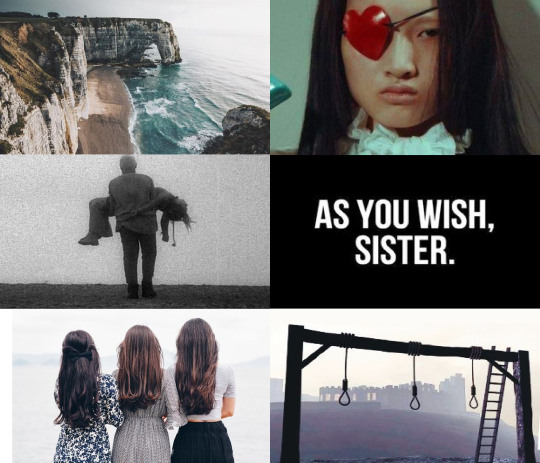

shakespeare plays | king lear
“Rumble thy bellyful! Spit, fire! spout, rain!
Nor rain, wind, thunder, fire are my daughters.
I tax not you, you elements, with unkindness.
I never gave you kingdom, call’d you children,
You owe me no subscription. Then let fall
Your horrible pleasure. Here I stand your slave,
A poor, infirm, weak, and despis’d old man.
But yet I call you servile ministers,
That will with two pernicious daughters join
Your high-engender’d battles ‘gainst a head
So old and white as this! O! O! ’tis foul!“
#shakespeare#shakespeareedit#shakespeareaesthetic#king lear#aesthetic#edits#graphics#picspam#theatre#blood tw#characters in order are:#lear#goneril#in the fur coat#regan#with the eye patch#the three sisters#edgar and edmund#cordelia#in the tiara#yo bois can you believe i'm in a production of this?
16 notes
·
View notes
Photo

Spoken by Lear, King Lear, Act 3, Scene 2
Blow, winds, and crack your cheeks! rage! blow!
You cataracts and hurricanoes, spout
Till you have drench’d our steeples, drown’d the cocks!
You sulph’rous and thought-executing fires,
Vaunt-couriers to oak-cleaving thunderbolts,
Singe my white head! And thou, all-shaking thunder,
Strike flat the thick rotundity o’ th’ world,
Crack Nature’s moulds, all germains spill at once,
That makes ingrateful man!
Rumble thy bellyful! Spit, fire! spout, rain!
Nor rain, wind, thunder, fire are my daughters.
I tax not you, you elements, with unkindness.
I never gave you kingdom, call’d you children,
You owe me no subscription. Then let fall
Your horrible pleasure. Here I stand your slave,
A poor, infirm, weak, and despis’d old man.
But yet I call you servile ministers,
That will with two pernicious daughters join
Your high-engender’d battles ‘gainst a head
So old and white as this! O! O! ’tis foul!
35 notes
·
View notes
Text
The symbolism and use of nature in William Shakespeare's "King Lear"
William Shakespeare's "King Lear", like many of his other works, entails a number references to sightings and objects in nature. These include various plants, animals, natural phenomena, weather descriptions, even planets. But what do these references mean, how are they used, and how well does Shakespeare's environmental awareness reveal itself, based on "King Lear" alone?
To begin with, the plants mentioned in King Lear are the following: apple, burdock, cork(y), corn, crab(-apple), cuckoo-flowers, darnel, flax, fumiter, furrow-weeds, hemlock, harlocks (burdock), hawthorn, lily (-livered), marjoram, nettles, oak, oats, peascod, rosemary, samphire, vines, wheat (1). While not all of these plants will be discussed in the current essay, we will stop to look at a few of these in their contexts. For example, in act 1, scene 5, when Lear is shunned by his daughter Goneril, he decides to visit his other daughter, Regan, in order to gain shelter, to which Lear's Fool comments:
"Shalt see thy other daughter will use thee
kindly; for, though she's as like this as a crab's like an
apple, yet I can tell what I can tell."
Apple and crab are used to show the difference in the natures of the daughters. In act 2, scene 3, Rosemary is mentioned in the passage where Edgar, Gloucester's son and Edmund's brother, has just escaped out to the countryside, away from his father, after being framed for treason:
"...The country gives me proof and precedent
Of Bedlam beggars who, with roaring voices,
Strike in their numbed and mortified bare arms
Pins, wooden pricks, nails, sprigs of rosemary;"
Sprigs of rosemary, along with the other items in the list seem to exemplify the futility in the protests of the beggar-class people. The use of marjoram seems interesting because the meaning behind it is less apparent. In act 4, scene 5, when Lear (now insane), walks in on the blinded Gloucester and Edgar and asks for a pass(word), Edgar responds with 'sweet marjoram' and Lear grants the pass. At this point, it is useful to know that marjoram is thought to have medicinal properties that could help cure certain diseases of the brain, which fits well in the given context. In act 4, scene 4, Cordelia, the daughter who was shunned by Lear himself quite early in the play, sends out people to find Lear, in response to the sightings of him:
"Alack, 'tis he! Why, he was met even now
as mad as the vexed sea, singing aloud,
Crowned with rank fumiter and furrow-weeds,
With hardocks, hemlock, nettles, cuckoo-flowers,
Darnel, and all the idle weeds that grow
In our sustaining corn. A century send forth;
Search every acre in the high-grown field,
and bring him to our eye."
As Cordelia hints, Lear was found in a corn field with a crown of different plants. In his madness, Lear gathered fairly unconventional flowers and weeds, which are either useless or dangerous. Hardocks, hemlocks and nettles are generally stingy to the human skin, with hemlock being poisonous aswell. So, Lear was not just gathering weeds, he was gathering poison. However, cuckooflower is neither poisonous nor a weed, it was used long ago as the Ancient Greeks and Romans lived and as recently as the last century for treating mental diseases (2). This might refer to Lear's subconscious wish to cure his insanity.
In addition to the rich descriptions and symbolism of the plants, "King Lear" also has references to nature on a larger scale in the form of weather, natural phenomena and planets. Due to their size and importance, these examples are not woven into the story the same way as plants are, they are given a bigger stage. In act 1, scene 1, Lear is dividing his kingdom between his daughters and describes the lands he is passing on to Goneril:
"[showing on the map] Of all these bounds, even
form this line to this,
With shadowy forests and with champaigns riched,
With plenteous rivers and wide-skirted meads,
We make thee lady."
In the same scene, after hearing Cordelia's resolve where she professes her love to Lear as his daughter, distances herself from her sisters who are not sincere in their promises and says nothing else in order to gain his favour, Lear says:
"Let it be so; thy truth then be thy dower!
For, by the sacred radiance of the sun,
The mysteries of Hecate and the night,
By all the operation of the orbs
From whom we do exist and cease to be,
Here I disclaim all my paternal care,
Propinquity and property of blood,
And as a stranger to my heart and me
Hold thee from this for ever."
The running themes in "King Lear" to an extent seem to be irony and the act of going against nature, an example of which is shown above, where Lear swears on the sun and orbs (possibly planets), disclaims his role as Cordelia's father and ironically, later in the play, Cordelia is the only person who truly cares about him. In act 1, scene 2, when the Earl of Gloucester hears about his son Edgar's alleged plot against him, he compares the situation to sightings in nature:
"These late eclipses in the sun and moon
portend no good to us. Though the wisdom of nature
can reason it thus and thus, yet nature finds itself
scourged by the sequent effects. Love cools, friendship
falls off, brothers divide. In cities, mutinies; in
countries, discord; in palaces, treason; and the bond
cracked 'twixt son and father."
Gloucester seems to blame the revolt on nature and its cycles. His son Edmund thinks otherwise:
"This is the excellent foppery of the world
that when we are sick in fortune—often the surfeit of
our own behavior—we make guilty of our disasters the
sun, the moon, and the stars, as if we were villains on
necessity, fools by heavenly compulsion, knaves,
thieves, and treachers by spherical predominance,
drunkards, liars, and adulterers by an enforced
obedience of planetary influence, and all that we are
evil in by a divine thrusting-on. An admirable evasion
of whoremaster man, to lay his goatish disposition to
the charge of a star! My father compounded with my
mother under the dragon’s tail and my nativity was
under Ursa Major, so that it follows I am rough and
lecherous. Fut, I should have been that I am, had the
maidenliest star in the firmament twinkled on my
bastardizing."
Edmund puts his trust in Nature, he refuses to accept the exclusion that is imposed on him as the illegitimate younger son. In act 2, scene 2, Kent tries to stop Oswald, who works against Lear, and says:
"No marvel, you have so bestirred your valour.
You cowardly rascal, Nature disclaims in thee; a tailor
made thee."
It seems that betraying Lear and losing honour in that manner goes against nature and such a deed is considered to be man-made. In act 2, scene 4, a storm is heard approaching right after the attitude of Lear's daughters' (Goneril and Regan) is revealed to him, meaning that they refuse to accept him with his men. Aftear hearing this, Lear starts wanting revenge on them, however, it could be said that Lear brought the situation on himself and the upcoming storm symbolises that, it is also a direct punishment on him (Lear has to survive the storm without much shelter) for trying to go against the circumstances that he created. In act 3, scene 2, Lear gives himself to nature's mercy:
"Rumble thy bellyful! Spit, fire! spout, rain!
Nor rain, wind, thunder, fire are my daughters.
I tax not you, you elements, with unkindess:
I never gave you kingdom, called you children;
You owe me no subscription. Then let fall
Your horrible pleasure. Here I stand your slave,
A poor, infirm, weak, and despised old man:
But yet I call you servile ministers,
That will with two pernicious daughters join
Your high-engendered battles 'gainst a head
So old and white as this. O, ho! 'tis foul!"
As he awknowledges his position, Lear also seems to wish for the nature to punish his daughters.
As it turns out, Shakespeare, atleast in the context of "King Lear", was definitely environmentally aware. In addition to using quite a number of plants, some of which have multi-layered meaning in their contexts due to their historical backgrounds, Shakespeare also seemed to compare humanity to natural phenomena and weather, such as storms and the alignment of planets, eclipses, which have influence over people's everyday lives. Most characters accept nature and the power behind it, some of them blame it or try to distance themselves from it, some put their trust in it, but almost everybody acknowledges nature.
Bibliography and sources:
(1) BOTANICAL SHAKESPEARE. Gerit Quealy, Sumie Hasegawa Collins. (2017). Botanical Shakespeare: An Illustrated Compendium of All the Flowers, Fruits, Herbs, Trees, Seeds, and Grasses Cited by the World's Greatest Playwright. Harper design.
(2) William Shakespeare. (2005). The tragedy of King Lear. Cambridge. Cambridge University Press, 214.
THIS GREAT STAGE OF FOOLS. Crowned with rank fumiter and furrow-weeds. Source: https://stageoffoolsdotcom.wordpress.com/2013/03/19/crowned-with-rank-fumiter-and-furrow-weeds/
William Shakespeare. (1994). King Lear. Ware, Hertfordshire. Wordsworth Editions Limited.
0 notes
Text
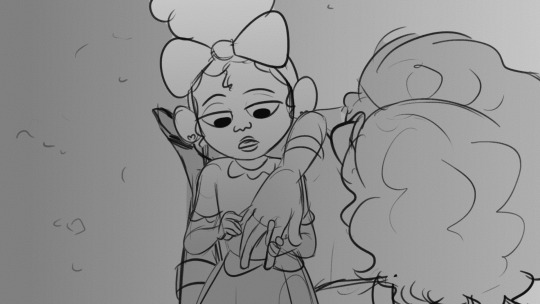
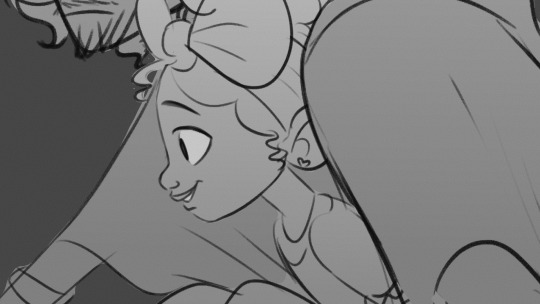




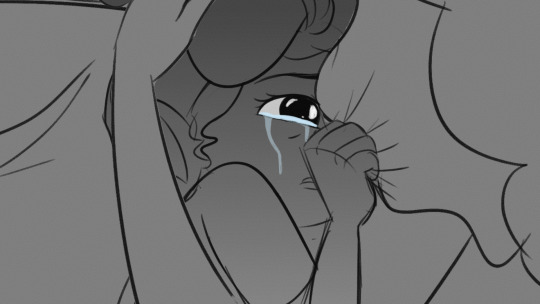
Part 2 of the Rumble Thy Bellyful boards!
ANGST 🤌🏼
768 notes
·
View notes
Text
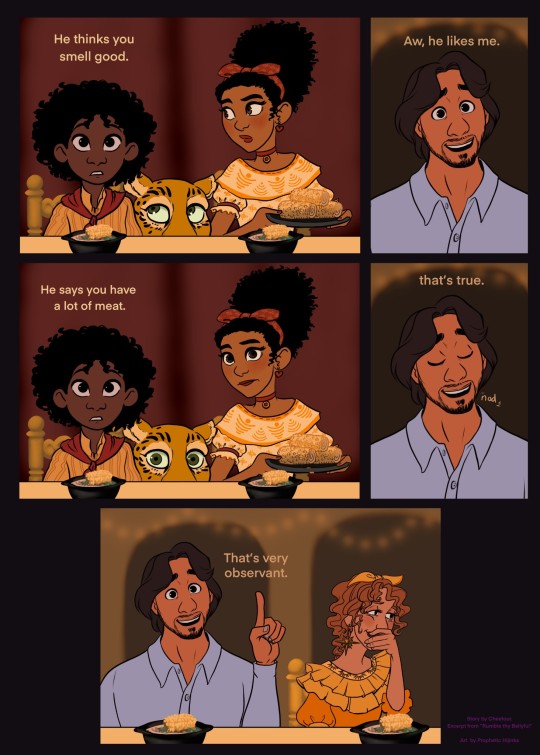
Happy birthday @cheetee I drew her OC Mariano in a scene from her fic "Rumble Thy Bellyfull" which I highly recommend.
The whole time drawing this, I kept muttering. He is so goddamn stupid.
#encanto#fanart#dolores madrigal#antonio madrigal#pepa madrigal#mariano guzmam#cheetee#rumble thy bellyful
324 notes
·
View notes
Note
Hi! Do you have any headcanons about what Dolores' and Mariano's (like, the Mariano from Rumble Thy Bellyful) wedding will be like?
WOW THAT'S A GREAT QUESTION... If I were to write that fic, how would it go...?
I think a lot of the story would revolve around Alma, Pepa, and Dolores, who would all agree upon a very big traditional wedding. I think it would be a lot of Alma & Pepa re-hashing what went wrong with Pepa's wedding as they carry out the bulk of Dolores' wedding planning, and Dolores, starry-eyed, completely indifferent to anything but the notion of marrying Mariano, totally neutral on every decision, outwardly stoic and inwardly just glowing with joy. I think both Alma and Pepa lose a little control of the situation, I think some stuff happens, I think it's probably Bruno's fault just because that's funny, and I think it all goes disastrously wrong...
And then Pepa and Alma look at each other, I think, re-living the moment last time, and reflecting on how things were done then, and now looking to Dolores and Mariano, because Mariano (with help from Mirabel and Camilo and Antonio, of course, who else, it's my fic) has put together this ragtag romantic thing for her and it's the only thing in the world she cares about. Dolores, in a ruined dress and no shoes, just radiantly happy.
And Alma and Pepa laugh it off, and Bruno finally manages to break the tension with laughter, and they hand things over to Félix, because he's the guy who knows how to have a good time under any circumstances, and they put together a messy little party anyway. ("Her wedding was just like ours," muses a dreamy Félix, "The most beautiful day in my life... Don't you remember?" And Pepa does remember.)
...
...Gosh, that was a lot more detailed than I was planning on making my answer. But there, that's how it would happen! I think Bruno would especially be the butt of this episode. I think Pepa and Alma learn something valuable in this episode and Bruno will never in his life learn why he shoudn't have made the rain joke at Pepa's wedding.
I guess Mirabel or Camilo's POV would appear somewhere. They're probably riffing about what they want from a future wedding, where every time they revisit the scenario Camilo wildly changes the gender and costume of his future wedding.
It's not planned, but Isabela ends up being the best man.
#I feel like this one would need a couple of new characters to be the respective wedding parties and idk about that though.#I ain't know how that would work.#Feel free to plagiarise anything about this and extrapolate on it because - well - I won't#I also don't know how the wedding would be. I'd be really bad at planning a wedding. I'll just be like “yah I'm easy”#I am extremely curious about how that wedding will go in canon - surely one of their sideshows will get it any day now#encanto#encanto fanfic#my writing#encantoTV#encanto headcanon#headcanon
27 notes
·
View notes
Note
For the “fic I wish you’d write” ask request…literally anything about Bruno’s mental health. That’s very broad. But whenever you allude to it in your fics (or explore it more deeply, like you did in some parts of Rumble Thy Bellyful) it seizes me by the throat. Somewhat related, I’d love to read your take on Alma’s request for a vision the night of Mirabel’s ceremony. Or your headcanons about any of these things. Kinda grim, but you do grim so well! Probably b/c you mix it w humor so well
Gosh, thank you...! But I do think the reason why the angst hits so hard is because I do it in very tiny spoonfuls. I have no idea how I'd handle a whole story that revolved around the themes of Bruno's mental health. I tend to dance around it almost as much as the movie does.
Although now that you mention it, I did actually rewrite a handful of scenes from my old fics from Bruno's POV, just to be self-indulgent, and they're significantly more intense when narrated by him. I ought to post that to my drabbles collection sometime... But I'm a little embarrassed about it, so I'd have to polish it first.
Sneak preview:

Ooh, but if you want a story about Bruno's mental health that does the funny parts extremely well, I'd recommend the Encanto fics by @thisstableground. If I wrote angst or psychological fanfic, I would want to do it exactly like her. I laughed out loud at several parts then lay in bed unable to sleep after.
15 notes
·
View notes
Note
💝🤍🕯️
💝what is a fic that got a different response than you were expecting?
I'm not sure! I guess the first fic I ever wrote, which was it's a heavy lift, really took me off-guard because I wasn't expecting anyone to read it and people did lol
🤍what's one fic of yours you think people didn't "get"?
I don't really have one, although I was really pleased with how many people took Mirabel's unreliable narration to heart in Birds of Paradise and didn't pick up on her being wrong about something in the plot until she herself did.
I have it very easy in my genre. I think if someone fails to "get" a fic that I wrote to be kid-appropriate, that's on me for not writing it clearly enough. I imagine I'd have lots of misinterpreted fics if I was writing, say, explicit romance, or hororr. 🤷♀️
🕯️was there a fic that was really hard on you to write, or took you to a place you didn't think it would take you?
Hold on. There's an old image on my computer I have to show you.

One time I was lacking inspiration and I asked for prompts, and this is the sum total of all of the prompts that people gave to me. I meant to post this when I actually finished the fic they were for, but I forgot about it until now!
Annoyingly, most of these get referenced to some degree in Rumble Thy Bellyful!, but not that one by @youmaycallmeyourhighness. I wanted to have Alma or someone drop a line in response to Mirabel's interference like, "I knew we should have enrolled you in the Catholic boarding school in the city", and I totally forgot, and now it's too late. Damn.
Anyway, most of the prompts were quite interpersonal, so I took that as a sign to write a drama -- a story that revolved soley around the relationship between Dolores and Pepa framed through Mariano's perspective. Chapter 2 ends with this line--
They had no way, fortunately, of knowing how catastrophically wrong things would go.
It would start with the hurricane, and it would end with the gun.
I had no idea at the time of writing that the hurricane and gun were referring to. I wrote that line specifically because I realised I would run out of steam to write the fic if it didn't have some kind of action/adventure element, so I though it would be funny to trap myself in a corner in that way and find a wacky way out of it.
Thank you for asking :^)
6 notes
·
View notes
Text

Feliz cumpleaños, Dolores! I didn’t make anything, but if you haven’t already, you should read Rumble Thy Bellyful!, which is about Dolores, Mariano, a gun, and several hurricanes.
19 notes
·
View notes
Note
For the director’s commentary: I’m always thinking about that passage in Rumble Thy Bellyful when the kids are making Bruno a get well card and Dolores can hear a lot of what the adults are keeping from them. I always wonder about that period of their lives, when Something’s Up with Tio Bruno but the extent to which the kids are aware of it varies depending on age or gift (poor Dolores) or sensitivity.

The thing about writing real light, low-stakes YA-ish stuff is that I have to deal with things like mental illness and dysfunction with a really light touch. (Well. I don't have to. I choose to. The Disney Execs that Live In My Brain have me on a tight leash.)
To that end, my favourite things to do with Bruno and Dolores, two of the movie's SADDEST CHARACTERS IMAGINABLE, is just to leave a lot of "negative space" - all the context you need to imagine what kind of trauma they've been through, and just a touch of what it was actually like, and then leave the rest to the reader's terrifying imagination.
Definitely that scene is the darkest one... I've ever written in my encanto fics, unless you count a particular Macondian Giftshop update?
My fics have a real easy-going, idealised, simplified version of the family's dynamics after the events of the movie. Sometimes I like to counterbalance that by depicting the dynamics before the movie as just a little bit hellish.
6 notes
·
View notes
Text
Rumble Thy Bellyful, Chapter 6
In which:
We have the time of our lives at an objectively shitty carnival
Mariano and Mirabel have a meaningful conversation
Mirabel and Antonio ride a Helter-skelter
THE FRENCHEST CHARACTER YOU CAN POSSIBLY IMAGINE
They get arrested
8 notes
·
View notes